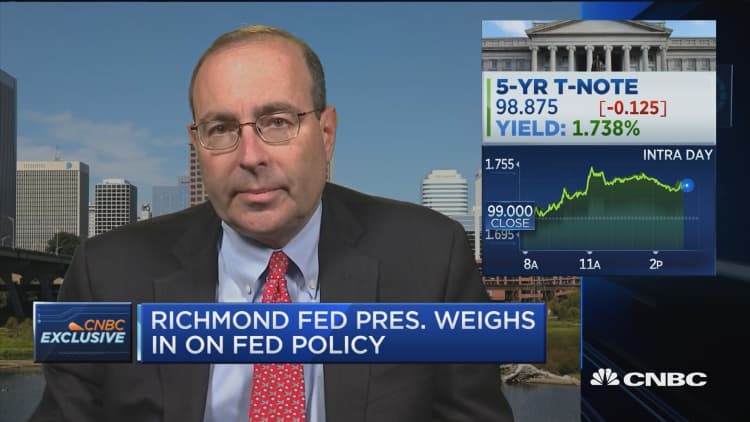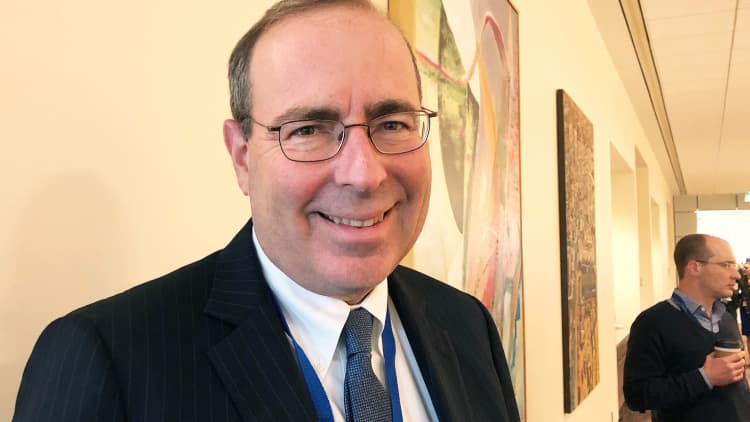
Richmond Fed President Tom Barkin told CNBC on Wednesday that he could reevaluate his stance on interest rates if major geopolitical issues such as the U.S.-China trade war reach a resolution in 2020.
"I'm very focused on the data. If the uncertainty reduction leads to increased hiring, increased investment, increased pricing and therefore inflation, that would be a welcome change," Barkin said on "Closing Bell." "And as the data changes, I may well change my outlook on rates."
Barkin, who joined the Richmond Fed in January 2018, referenced the uncertainty around the trade war, the United Kingdom's looming departure from the European Union and the likelihood of the U.S. Congress approving the renegotiated North American Free Trade Agreement.
"We have seen a lot of uncertainty over the last year, year and a half, and I do think that's been holding the economy back," said Barkin, who is not a voting member of the Federal Open Market Committee, which sets interest rates.
Barkin's comments Wednesday come hours after New York Fed President John Williams told CNBC he believed "monetary policy is in a good place."
"But, as we've proven in the past, if economic conditions shift, change in a material way … obviously we're ready to adjust our policy views accordingly," Williams said in an interview with CNBC's Steve Liesman.
The Fed has lowered rates three times this year, most recently in October. That stands in contrast to its handling of monetary policy in 2018, when it raised rates four times. The last rate hike of 2018 contributed to a significant year-end sell-off in the stock market.
Barkin said a fully executed "phase one" trade deal between the U.S. and China, more clarity around Brexit, which may arise after U.K. Prime Minister Boris Johnson's large victory in last week's parliamentary elections, and passage of the updated NAFTA could be a boon to the American economy.
"I think we have an opportunity here, if we can settle the uncertainty in the environment, to allow us to grow," said Barkin, who had previously been an executive at McKinsey & Co., the privately held consulting firm.
He also served for six years on the board of directors for the Atlanta Fed, from 2009 to 2014.
When asked about criticism of the Fed from President Donald Trump and others who believe interest rates should be even lower, Barkin said data on the American economy speaks for itself.
"I think if you look at the numbers, you'd say we're doing about as well as any Fed has ever done," he said.
-CNBC's Jeff Cox contributed to this report.



